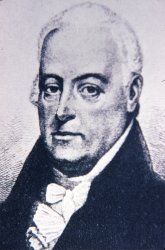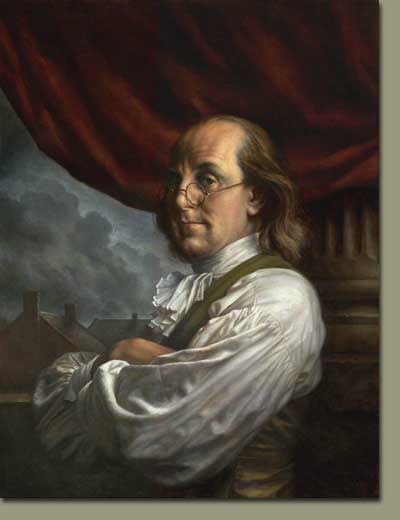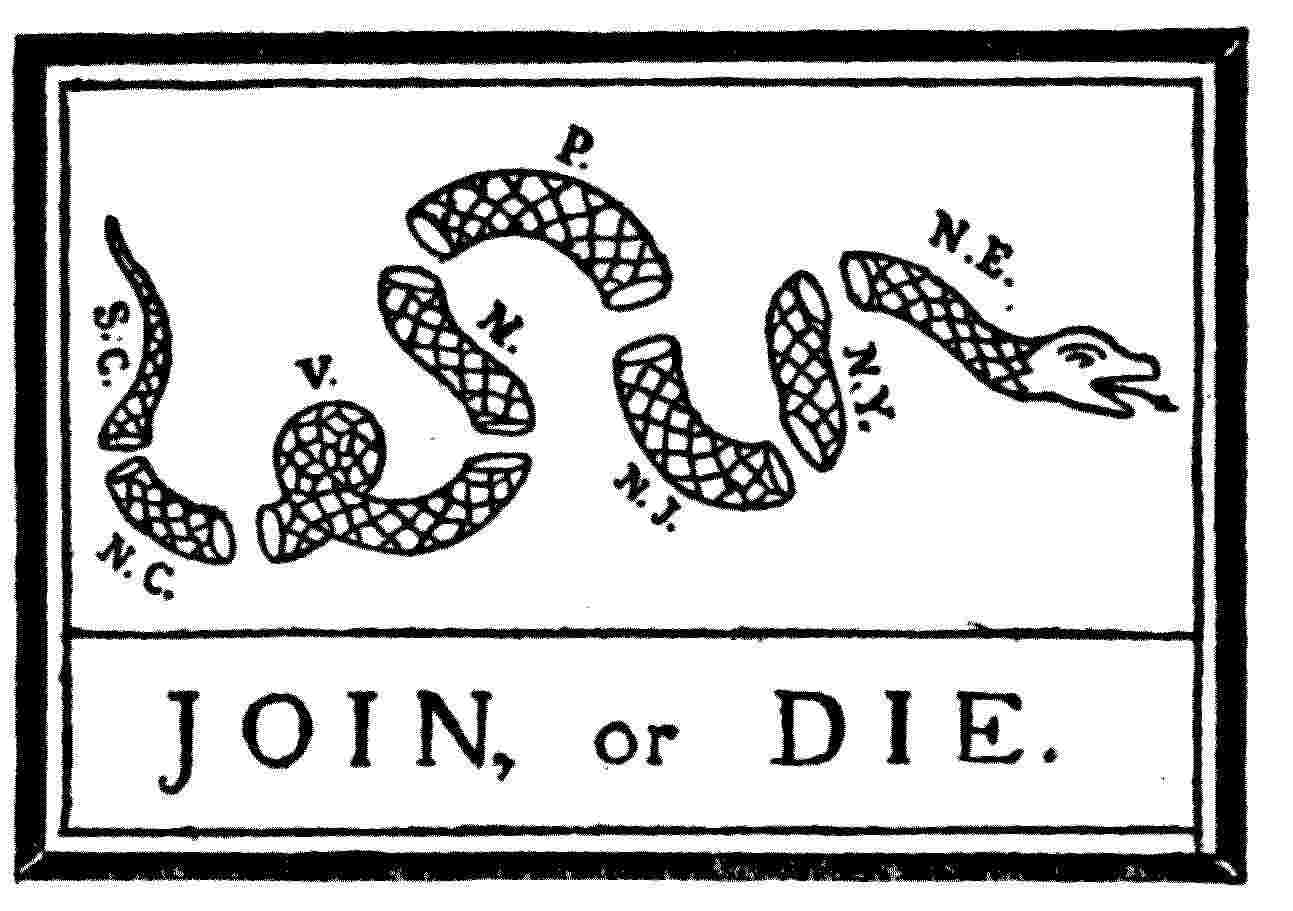Once the New York delegation went
home and the Great Compromise was reached, Luther Martin of Maryland remained the lonely
voice arguing in vain for state sovereignty, ignored by all the others. He arrived on June 9, 1787, after the
Virginia Plan had been debated for some time, but before the New Jersey Plan
had been presented, and Madison believed that he participated in preparing the
New Jersey Plan. He did not speak in
favor of the New Jersey Plan when it was first introduced, but once the
Virginia Plan was adopted, he backed Lansing’s last-ditch motion to revive the
New Jersey Plan by vesting all powers of the United States legislature in
“Congress.”
At the separation from
the British Empire, the people of America preferred the establishment of
themselves into thirteen separate sovereignties instead of incorporating
themselves into one: to these they look up for the security of their lives,
liberties & properties: to these they must look up. The federal Gov’t they formed, to defend the
whole agst foreign nations, in case of war, and to defend the lesser States
agst the ambition of the larger: they are afraid of granting powers
unnecessarily, lest they should defeat the original end of the Union; lest the
powers should prove dangerous to the sovereignties of the particular States
which the Union was meant to support; and expose the lesser to being swallowed
up by the larger.
He also spoke against
representation by population, against election by the people and against having
two houses, all as weakening the sovereignty of states.
His most extensive argument for
state sovereignty took place on June 27-28, when he held forth on the subject
at length. The General Government, he
said was meant merely to preserve the state governments, not to govern
individuals (this is the clearest rejection anyone gave of the “national”
principle of authority over individuals and in favor of the “federal” principle
of legislating only for collective bodies).
If the central government was too weak, more powers could be added; if
too powerful, powers could not be taken back.
(He has a point there). He then
went into more Lockean theory of the social contract than the other delegates
ever used. Just as individuals are
equally free and independent in the state of nature, so are states equally free
and independent in the state of nature, citing important social philosophers to
prove his point. Since the individual
citizens of the states had formed their social contract to form state
government, and since state governments had formed a social contract to create
a federal government, to appeal directly to the people of the states to make a
national government would throw them back into the state of nature (i.e.,
anarchy). If representation became
proportional to population, Virginia would have 16 representatives, and surely
it would be easier for these 16 to combine against the small states than for
the small states to combine against Virginia.
He feared representation by population would totally subordinate the
other ten states to Virginia, Massachusetts and Pennsylvania. Reading
Madison’s summary of this speech, with one argument against a national system
piled on after another, one senses a note of panic there, a fear that state
sovereignty was slipping away and that if he did not persuade the Convention
now, all would be lost. His colleagues
sitting through the nearly two days of his speech may have gotten a different
impression. To them, the whole thing may
simply have been long-winded and boring.
He kept up the argument. Under the Articles of Confederation, the
states were said to be equally sovereign and independent. Why was that not now understood? He would never agree to
confederate except on “just” principles, i.e., equal representation by states. Unlike Lansing and Yates, Martin did not walk out, but neither did he ever accept the new system. When Morris and King proposed equal representation in the Senate so long
as voting was by individuals instead of states, everyone else joined the
general love-fest, but Martin resisted, saying that voting per capita departed
from the idea of states being represented in the second branch.
Martin consistently supported state
sovereignty on all issues but one. He opposed having state officials take an oath to uphold federal laws lest it
conflict with their oath to state laws. He also opposed allowing the federal government to
collect taxes from individuals directly; rather, when direct taxes were needed,
it should have states raise them by quotas and favored having the states pay the Senate, since the Senate was to represent the states. He opposed the
creation of federal trial courts and, if they could not be prevented, wanted judges to be appointed by the Senate, as representatives of the states. He opposed federal
control of the state militia, favored a limit on the size of
army the federal government could keep during peace time, and believed the consent of a state should be required before the federal
government could intervene to suppress a rebellion. Naturally, he thought a federal veto of state
laws “improper and inadmissible”, although even he agreed to a strongly-worded
statement federal law should be supreme, anything in state law notwithstanding. He favored
ratification of the Constitution by state legislatures, saying that an appeal
to the people would lead to “commotions” and called for a unanimous ratification
by all 13 states. In any case, he was
sure that the Constitution would be rejected, especially by the people and
state government of Maryland, and that the only way it could ever pass would be
if the people were rushed into it without proper chance to consider.
On one issue and one issue only did
Martin support the central government over the states – the issue of western lands. Maryland had no claims to western lands, and greatly resented the states (particularly Virginia) that did. On this, Martin spoke more as a representative specifically of Maryland than as a states' rights man. He opposed the provision that
states could not be deprived of land without their consent – the western lands
must be given up to the general government, a very important point to
Maryland. He mocked the large states’
resistance on the subject:
He wished Mr Wilson
had thought a little sooner of the value of political bodies. In the beginning, when the rights of the
small sates were in question, they were phantoms, ideal beings. Now when the great States were to be
affected, political societies were of a sacred nature.
Yet Martin undermined his own
position in arguing for large states to give up their western claims. In response to Wilson, who said that a state
should be broken up only if the majority of people within the state wish to be
divided, he replied that in Virginia, representation was by counties instead of
by population.
Even if they [the
people wishing to separate] should become the majority, the majority of Counties,
as in Virginia, may still hold fast the dominion over them. Again, the majority may place the seat of
Government entirely among themselves & for their own conveniency, and still
keep the injured parts of the States in subjection, under the guaranty of the
Gen’l Government agst domestic violence.(Ibid).
Martin does not seem to have
realized what a strong argument this could have been against representation by
states, as well as by counties!
One final comment on Martin and his
irreconcilability. He had left by the
end of the Convention, and so did not have the opportunity to refuse to sign
the Constitution, but he opposed it bitterly during the ratification debates in
Maryland. His opposition, as mentioned
above, was in vain; the Maryland convention passed the Constitution 63-11 with
only five days’ debate. He would seen a natural follower of Thomas
Jefferson, who after the Constitution was adopted led the party seeking to
limit federal powers. Yet Martin
developed so deep a personal grudge against Jefferson that he ultimately joined
Hamilton’s centralizing Federalists out of pure spite!
NEXT UP: NORTH-SOUTH ISSUES AT THE CONSTITUTIONAL CONVENTION.












